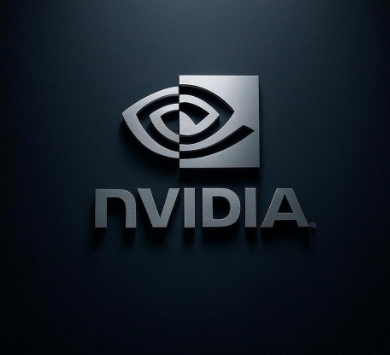The Internet of Things (IoT) continues to reshape industries, connecting devices across the globe to drive innovation, efficiency, and new revenue streams. However, scaling IoT deployments on a global level has often been fraught with challenges—fragmented networks, complex provisioning, and inconsistent visibility across operators. On April 29, 2025, Aeris, a global leader in secure cellular IoT platforms, announced a significant expansion of its IoT Accelerator platform, introducing eSIM orchestration and enhanced visibility to address these pain points. This development, covered by IoT Business News, promises to simplify global IoT deployments for enterprises, offering a unified, scalable solution that could redefine how businesses manage connected devices worldwide.
The Growing Importance of IoT and the Role of eSIM
IoT has become a cornerstone of digital transformation, with applications spanning automotive, healthcare, utilities, and fleet management. According to Berg Insight’s 2025 report, the IoT connectivity management platform market is projected to grow at a compound annual growth rate of 12%, rising from $1 billion in 2024 to $1.8 billion by 2029. This growth is driven by the increasing demand for seamless, secure, and scalable connectivity solutions, particularly as enterprises expand their IoT fleets across borders.
At the heart of this expansion is the embedded SIM (eSIM) technology, which is rapidly gaining traction in the IoT space. Unlike traditional physical SIM cards, eSIMs allow for remote provisioning and management of network profiles, enabling devices to switch operators without physical intervention. This flexibility is crucial for global IoT deployments, where devices must operate across multiple regions with varying network requirements. However, the complexity of managing eSIMs across different operators has historically been a barrier to adoption, often requiring enterprises to navigate a web of aggregators and platforms, leading to increased costs and operational friction.
Aeris’ latest update to its IoT Accelerator platform tackles these challenges head-on by introducing a single-SKU eSIM solution, providing enterprises with a unified interface to manage connectivity across operators. This move not only simplifies deployment but also reduces the financial burden of “margin stacking”—a common issue in competitive offerings that rely on multiple aggregator layers.
Aeris IoT Accelerator: A Unified Approach to Global Connectivity
Aeris, which acquired the IoT Accelerator platform from Ericsson in 2023, has positioned itself as a market leader in cellular IoT solutions. The platform, backed by over $2 billion in investment from Ericsson, already connects more than 100 million devices across 190 countries. With this expansion, Aeris enhances its offering by integrating advanced eSIM orchestration, enabling enterprises to manage their IoT fleets through a single pane of glass—a centralized dashboard that provides real-time visibility, control, and security management.
The key features of this expansion include:
- Single-SKU eSIM Delivery: Enterprises and original equipment manufacturers (OEMs) can now deploy devices globally using a single eSIM, eliminating the need for region-specific SIMs. This late-provisioning capability allows devices to be activated with the appropriate network profile at the point of use, streamlining logistics and reducing costs.
- Common Core Network: By leveraging partnerships with nearly 30 mobile network operators worldwide, Aeris provides a unified core network that crosses multiple carriers. This ensures consistent connectivity, manageability, and scalability for enterprise IoT deployments, regardless of geographic location.
- Enhanced Ecosystem Collaboration: The platform fosters cooperation among stakeholders—manufacturers, carriers, and enterprises—by offering an end-to-end service model. This reduces operational complexity and optimizes unit economics, making global IoT programs more profitable.
Aeris Chief Product Officer Jonathan Connet emphasized the customer-centric approach of this expansion, stating that it addresses key pain points such as provisioning complexity and cost inefficiencies. Meanwhile, CEO Aziz Benmalek highlighted Aeris’ position as the largest orchestrator of eSIMs globally, underscoring the company’s ability to deliver a unified customer experience without the technical constraints or added costs of overlay SIM orchestration platforms.
Addressing Industry Challenges
The IoT industry has long grappled with fragmentation, particularly in global deployments. Enterprises often face a patchwork of platforms, carriers, and regional regulations, leading to inconsistent operations and fluctuating costs. For instance, provisioning devices to meet local requirements can be a logistical nightmare, especially when activating eSIMs or ensuring compliance with regional standards. Additionally, limited visibility into device traffic and security risks has made it difficult for businesses to diagnose issues quickly, increasing downtime and operational costs.
Aeris’ expanded IoT Accelerator platform directly tackles these issues. By offering a single platform for provisioning, connectivity, and visibility, it reduces the need for third-party aggregators, which often introduce additional layers of complexity and cost. The platform’s integration with Aeris IoT Watchtower, a security solution launched earlier in 2025, further enhances its value by providing real-time monitoring and zero-trust security features to safeguard IoT fleets against cyber threats—a growing concern as IoT malware attacks surged by 400% in 2024, according to Deloitte.
The Broader Implications for the IoT Ecosystem
The expansion of Aeris’ IoT Accelerator platform aligns with broader trends in the IoT industry, particularly the increasing adoption of eSIM technology. GSMA’s SGP.32 specification, designed specifically for IoT, has been a catalyst for this shift, simplifying remote provisioning and profile management for constrained devices. Omdia forecasts that eSIM connections in IoT will grow from just over 1 billion in 2023 to 3.6 billion by 2030, driven by advancements in eSIM technology and the growing demand for 5G and 4G LTE solutions.
For enterprises, this means greater flexibility and scalability. Industries like automotive, where Aeris already has a strong foothold with clients like Chrysler and Volkswagen, stand to benefit significantly. A single-SKU eSIM allows manufacturers to produce vehicles with global connectivity out of the box, enabling features like real-time diagnostics, over-the-air updates, and connected services across multiple regions. Similarly, sectors like healthcare and utilities can leverage Aeris’ platform to deploy connected devices—such as remote patient monitoring systems or smart meters—with minimal logistical overhead.
However, the rise of eSIM and platforms like Aeris IoT Accelerator also raises questions about market dynamics. While Aeris positions itself as a leader, it faces competition from other players like AT&T, which recently unveiled its Global SIM Advanced solution for eSIM orchestration, and BICS, which launched its eSIM Hub in April 2025. The competitive landscape suggests that enterprises will have multiple options to choose from, potentially driving down costs but also creating new challenges in ensuring interoperability and standardization across platforms.
A Step Toward a Connected Future
Aeris’ expansion of its IoT Accelerator platform marks a pivotal moment in the evolution of global IoT connectivity. By addressing the complexities of eSIM management and providing a unified, scalable solution, Aeris is empowering enterprises to unlock the full potential of their IoT programs. The platform’s focus on simplicity, cost-efficiency, and security aligns with the needs of a rapidly growing market, where connectivity is no longer a luxury but a necessity.
As IoT continues to transform industries, solutions like Aeris IoT Accelerator will play a critical role in bridging the gap between innovation and implementation. For enterprises looking to scale their IoT deployments globally, this expansion offers a promising path forward—one that prioritizes flexibility, visibility, and collaboration. With the IoT ecosystem poised for significant growth in the coming years, Aeris’ latest move positions it as a key player in shaping the future of connected devices.



